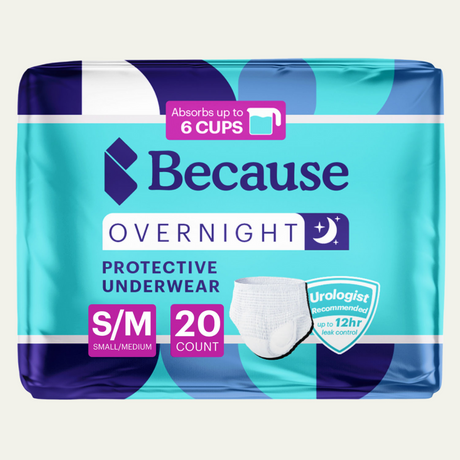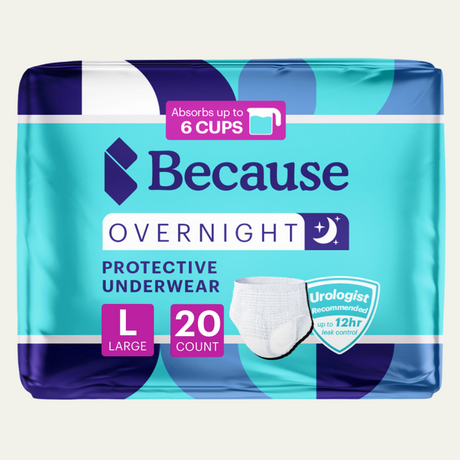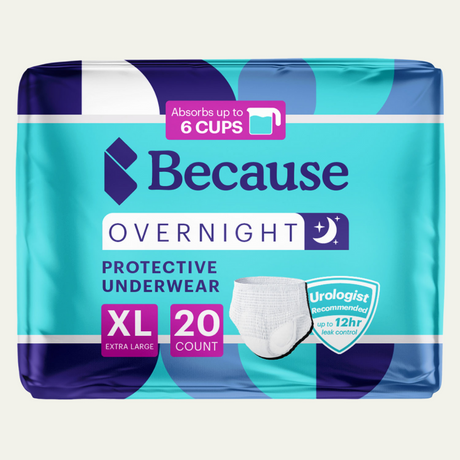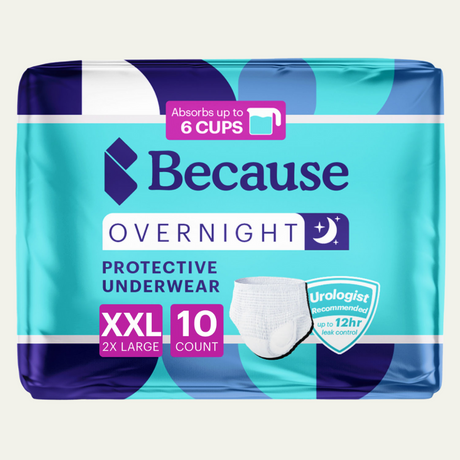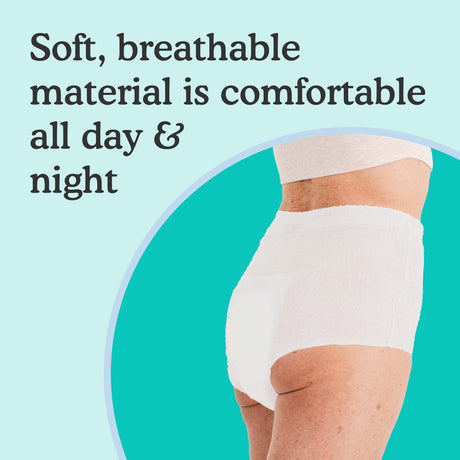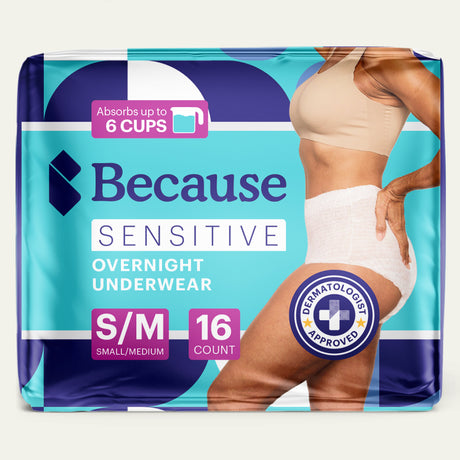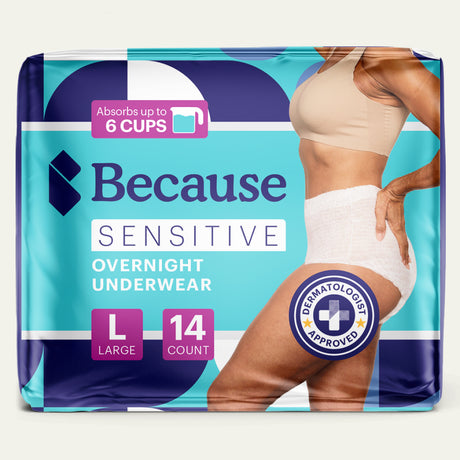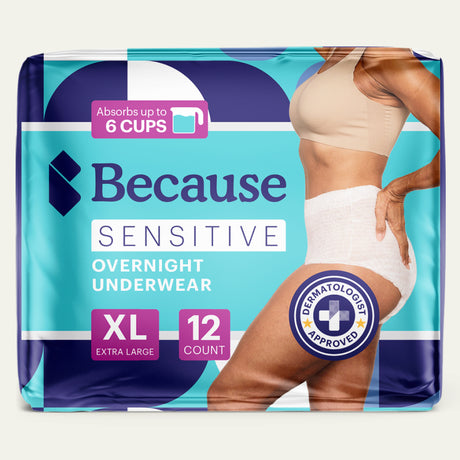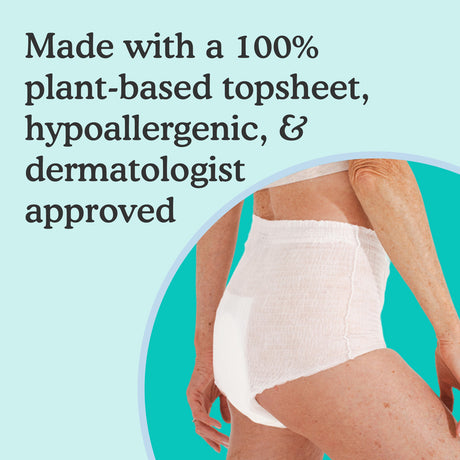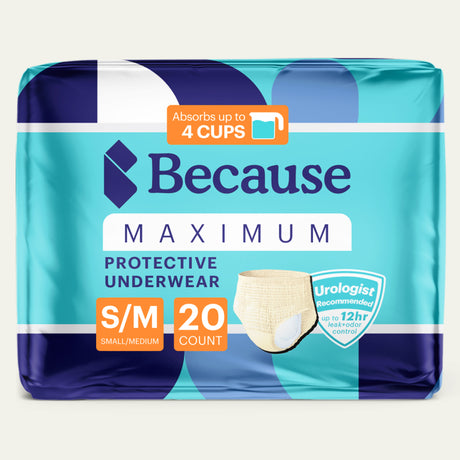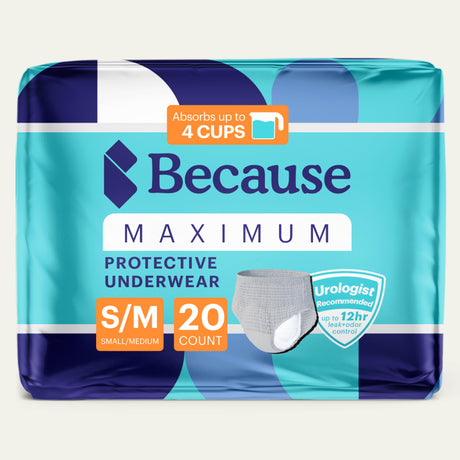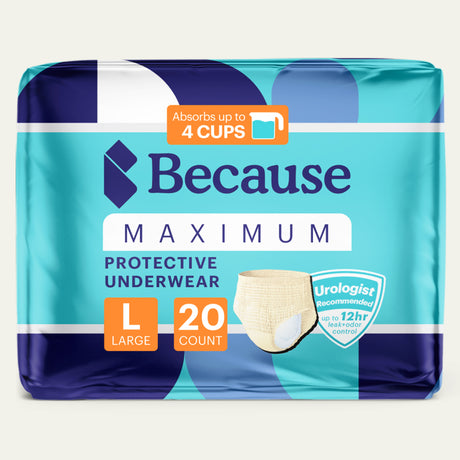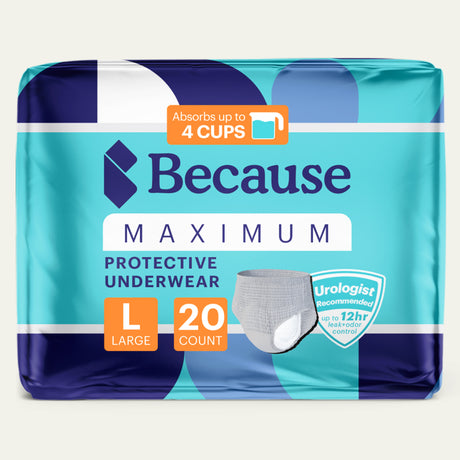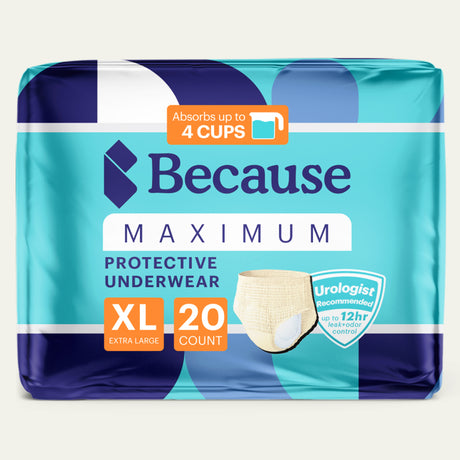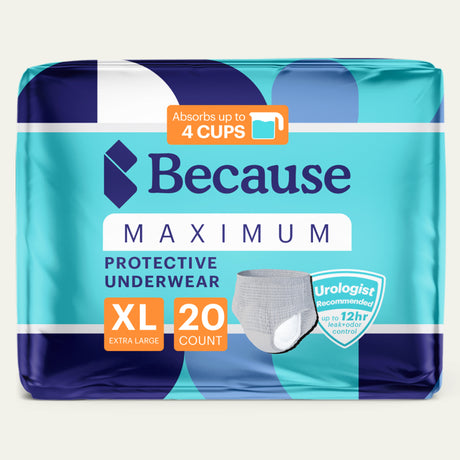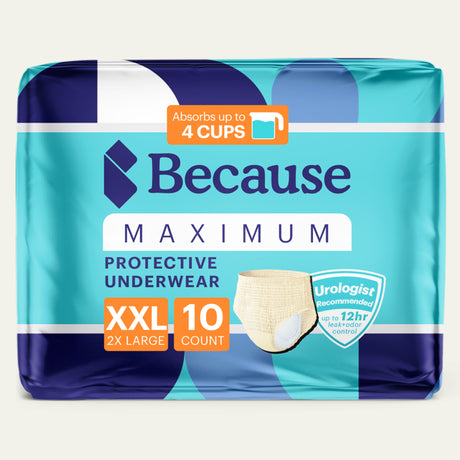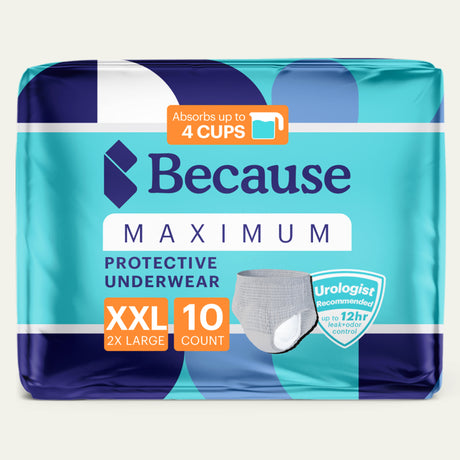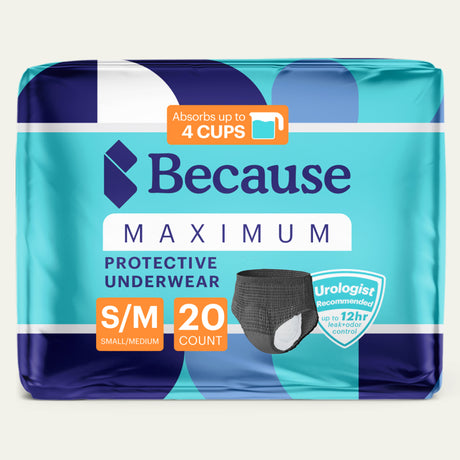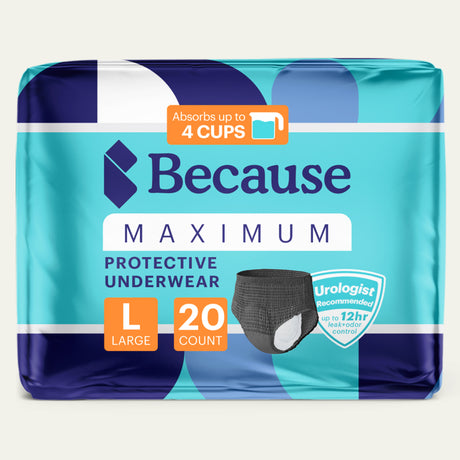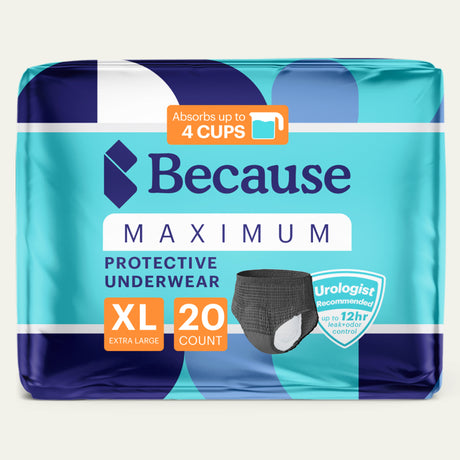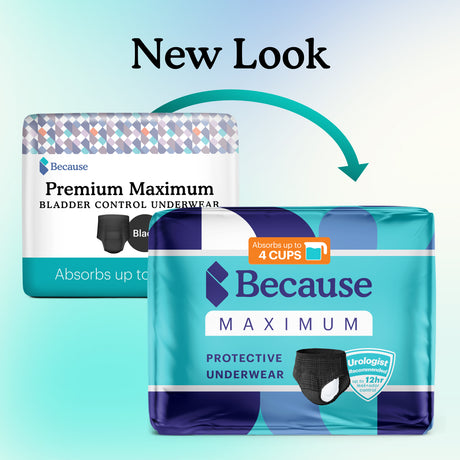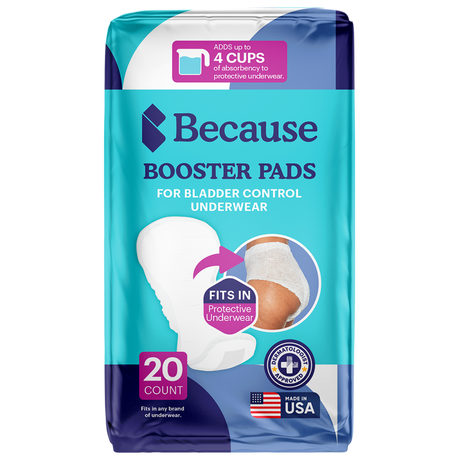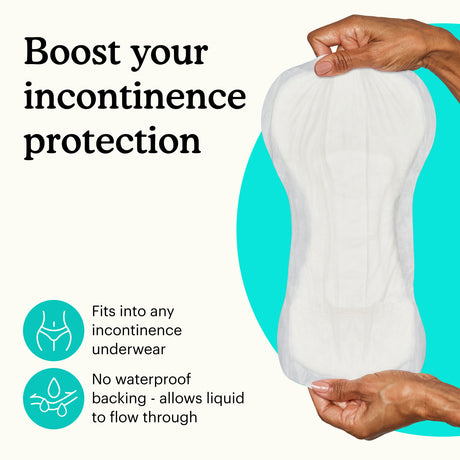Transient incontinence is a common yet often overlooked condition that can significantly impact daily life. Studies suggest that up to 50% of women experience urinary incontinence at some point in their lives, with the prevalence increasing with age. If you've been grappling with episodes of sudden urinary leakage and wonder about the underlying causes and management strategies, you're not alone.
In this blog, we delve into the difference between transient incontinence and chronic incontinence while also exploring its causes, treatment options, and practical tips for managing this condition effectively in your day-to-day life.

What is Transient Incontinence?
Transient incontinence refers to a temporary loss of bladder control that typically arises due to reversible factors or underlying medical conditions. It is characterized by sudden episodes of urinary leakage, often triggered by specific events or circumstances such as urinary tract infections, medication side effects, or constipation. Transient incontinence usually resolves once the underlying cause is identified and addressed.
Chronic incontinence refers to the persistent and long-term inability to control urination or bowel movements. This condition can result from various underlying health issues, such as neurological disorders, weakened pelvic muscles, or chronic diseases, and often requires ongoing management and treatment.

Common Causes of Transient Urinary Incontinence
There are various common causes behind transient urinary incontinence, in this section we will explore the temporary factors and medical conditions that can lead to sudden episodes of bladder leakage.
Certain Medications
Certain medications can disrupt bladder function and lead to transient urinary incontinence by affecting nerve signals or muscle contractions involved in urinary control. Medications such as diuretics, alpha-blockers, sedatives, antidepressants, and antipsychotics are known to increase urinary frequency or weaken bladder control, potentially resulting in episodes of leakage.
Additionally, drugs that have anticholinergic effects, including antihistamines, antispasmodics, and certain antipsychotics, can interfere with bladder contractions and sphincter function, contributing to urinary incontinence. It's essential to consult with a healthcare provider if you experience urinary symptoms while taking any medications, as adjustments to treatment may be necessary to alleviate incontinence.
Temporary Medical Conditions
Temporary medical conditions can lead to transient urinary incontinence by disrupting the normal functioning of the bladder or its control mechanisms. These conditions may include urinary tract infections (UTIs), which can irritate the bladder and increase urinary urgency and frequency, often accompanied by leakage. Additionally, constipation can put pressure on the bladder, leading to overflow incontinence or leakage. Acute illnesses such as respiratory infections, gastrointestinal disturbances, or neurological conditions like stroke or transient ischemic attacks (TIAs) can also temporarily affect bladder function, resulting in episodes of urinary incontinence. Resolving the underlying medical condition typically resolves the associated transient incontinence.
Lifestyle Factors
Lifestyle factors can contribute to transient urinary incontinence by affecting bladder function or exacerbating underlying conditions. Some common lifestyle factors include:
- Diet and Fluid Intake: Consuming bladder irritants such as caffeine, alcohol, spicy foods, or artificial sweeteners can irritate the bladder lining, leading to increased urinary urgency and frequency, potentially resulting in leakage.
- Weight and Physical Activity: Excess body weight can put pressure on the bladder and pelvic floor muscles, contributing to urinary leakage. Conversely, maintaining a healthy weight and engaging in regular physical activity can support bladder control and reduce the risk of incontinence.
- Smoking: Tobacco use can irritate the bladder and increase coughing, which can lead to stress incontinence. Quitting smoking can improve bladder function and reduce urinary leakage.
- Bowel Habits: Chronic constipation or straining during bowel movements can put pressure on the bladder and pelvic floor muscles, leading to urinary urgency and leakage. Maintaining regular bowel habits through a balanced diet and adequate hydration can help prevent this.
Addressing these lifestyle factors through dietary modifications, hydration management, weight management, smoking cessation, and proper bowel habits can help alleviate transient urinary incontinence and promote overall bladder health.
Recognizing the Symptoms of Transient Incontinence
Recognizing the symptoms of transient incontinence is crucial for prompt diagnosis and management. Individuals experiencing transient incontinence may notice sudden episodes of urinary leakage, particularly during activities such as laughing, coughing, or lifting. Increased urinary urgency and frequency, as well as the sensation of incomplete bladder emptying, are common accompanying symptoms.
Additionally, individuals may experience nocturia, or the need to urinate frequently during the night, disrupting sleep patterns. Recognizing these symptoms and their triggers can help individuals seek appropriate medical evaluation and address the underlying causes of transient incontinence effectively.
Management Strategies for Transient Incontinence
In this section, we delve into effective management strategies for transient urinary incontinence, offering practical solutions to alleviate symptoms and improve bladder control. From lifestyle modifications to products you can use to improve your daily life, explore the comprehensive range of options available to regain confidence and enhance quality of life.
Using Incontinence Products
In managing transient urinary incontinence, various types of incontinence products can provide practical solutions to help individuals maintain comfort and confidence. Disposable pads and guards offer discreet protection against leakage, absorbing urine and keeping the skin dry. Disposable underwear, also known as pull-ups, briefs, or adult diapers, provide a secure fit and can be easily disposed of after use. Reusable washable underwear and pads offer a more environmentally friendly option, providing reliable protection while reducing waste. Finally, if you struggle with nocturia, disposable or reusable underpads can help protect your mattress and bedding from leaks.
When using these products, it's essential to choose the right size and absorbency level for individual needs, ensuring optimal comfort and effectiveness. Regular changing and proper disposal of used products are also important to maintain hygiene and prevent skin irritation. Using barrier creams to protect skin from excess moisture can help reduce chafing, gentle cleansers after leaks, and soothing moisturizing wipes and lotions can help your skin stay healthy.
Additionally, combining the use of incontinence products with lifestyle modifications and other management strategies can help individuals effectively manage transient urinary incontinence and maintain an active lifestyle with confidence.
Promoting Bladder Health
Promoting bladder health is essential for preventing and managing urinary incontinence and maintaining overall well-being. One of the key strategies is to stay hydrated by drinking an adequate amount of water throughout the day, which helps maintain bladder function and prevents urinary tract infections.
Additionally, maintaining a healthy weight through a balanced diet and regular exercise can reduce pressure on the bladder and pelvic floor muscles. Practicing good bathroom habits, such as avoiding holding urine for extended periods and fully emptying the bladder when urinating, can also support bladder health.
Finally, avoiding bladder irritants such as caffeine, alcohol, and spicy foods, and quitting smoking can help reduce the risk of bladder irritation and urinary symptoms. By incorporating these lifestyle habits into daily routines, individuals can promote bladder health and minimize the risk of urinary incontinence.
Talk to Your Doctor
It's important to consult a healthcare provider if you experience symptoms of transient urinary incontinence, as timely intervention can help identify and address underlying causes effectively. If you notice sudden episodes of urinary leakage, increased urinary urgency or frequency, or other changes in bladder function that persist for more than a few weeks, it's advisable to seek medical evaluation.
Additionally, if urinary symptoms significantly affect your quality of life, interfere with daily activities, or are accompanied by other concerning symptoms such as blood in the urine or recurrent urinary tract infections, it's essential to discuss them with a doctor promptly. A healthcare provider can perform a thorough evaluation, including medical history review, physical examination, and possibly diagnostic tests, to determine the cause of transient incontinence and develop an appropriate treatment plan tailored to your needs.
Are you struggling with incontinence? Take our bladder protection quiz and get a sample pack to try for just $2.99!
If you're struggling with incontinence, join one of our private support groups today!
Women's Incontinence Support Group
Men's Incontinence Support Group
Sources:
Khalife, T. & Anil, G. (2022, Nov. 7). Is urine incontinence normal for women? Mayo Clinic Health System. Retrieved May 28, 2024, from https://www.mayoclinichealthsystem.org/hometown-health/speaking-of-health/is-urine-incontinence-normal-for-women
Nygaard, I., & Heit, M. (2013). Stress urinary incontinence. American Family Physician, 87(8), 543-550. Retrieved from https://www.aafp.org/pubs/afp/issues/2013/0415/p543/jcr:content/root/aafp-article-primary-content-container/aafp_article_main_par/aafp_tables_content2.enlarge.html
FutureLearn. (n.d.). What are transient causes of incontinence?. Retrieved May 28, 2024, from https://www.futurelearn.com/info/courses/understanding-continence-promotion/0/steps/46082



